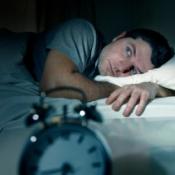 Students who are homeschooled get more sleep than peers who attend either public or private school, according to a study published in Behavioral Sleep Medicine.
Students who are homeschooled get more sleep than peers who attend either public or private school, according to a study published in Behavioral Sleep Medicine.
Some advocates, including the National Sleep Foundation, say early school start times interfere with healthy sleep. This may be especially true among teenagers, whose circadian rhythms may shift toward later waking times. In 2015, another study found high rates of sleep deprivation among teenagers.
Does Homeschooling Improve Sleep?
Researchers looked at 2,612 students, including nearly 500 homeschooled kids. On average, homeschooled students slept 90 minutes more each night than their public and private school peers. Children who attended school outside of the home awoke early enough to be in class an average of 18 minutes before homeschooled children awoke.
Overall, 55% of homeschooled students got an adequate amount of sleep each week, though just 24% of children attending school outside of the home slept enough. About 16% of homeschooled children got “insufficient” sleep during the week, compared to 44% of private and public school students.
The Importance of Healthy Sleep
The study suggests differences in sleep can alter student performance and well-being. Students who attend high schools with later start times, for example, have higher graduation rates and fewer instances of tardiness. Though some parents might insist the solution is for teens to go to bed earlier, the study’s authors caution that biological changes during adolescence can make this difficult. Most teens’ biological clocks shift forward about two hours during adolescence, necessitating later bedtimes and later waking times.The National Sleep Foundation recently changed its sleep recommendations for children and young adults:
- Children ages 6-13 should get 9-11 hours of sleep each night.
- Teenagers ages 14-17 need 8-10 hours of sleep each night.
- Young adults ages 18-25 need 7-9 hours of sleep each night.
References:
- National Sleep Foundation recommends new sleep times. (2015, February 2). Retrieved from https://sleepfoundation.org/media-center/press-release/national-sleep-foundation-recommends-new-sleep-times
- Study: Homeschooled kids sleep more than others. (2016, March 2). Retrieved from http://www.eurekalert.org/pub_releases/2016-03/m-shk030216.php

The preceding article was solely written by the author named above. Any views and opinions expressed are not necessarily shared by GoodTherapy.org. Questions or concerns about the preceding article can be directed to the author or posted as a comment below.

 From the Sleep Queen: Simple Tips and Yoga to Help You Sleep
From the Sleep Queen: Simple Tips and Yoga to Help You Sleep How Poor Sleep Affects Hormones and Mental Health
How Poor Sleep Affects Hormones and Mental Health 5 Solutions to Your Child’s Sleep Problems
5 Solutions to Your Child’s Sleep Problems

Please fill out all required fields to submit your message.
Invalid Email Address.
Please confirm that you are human.
Leave a Comment
By commenting you acknowledge acceptance of GoodTherapy.org's Terms and Conditions of Use.